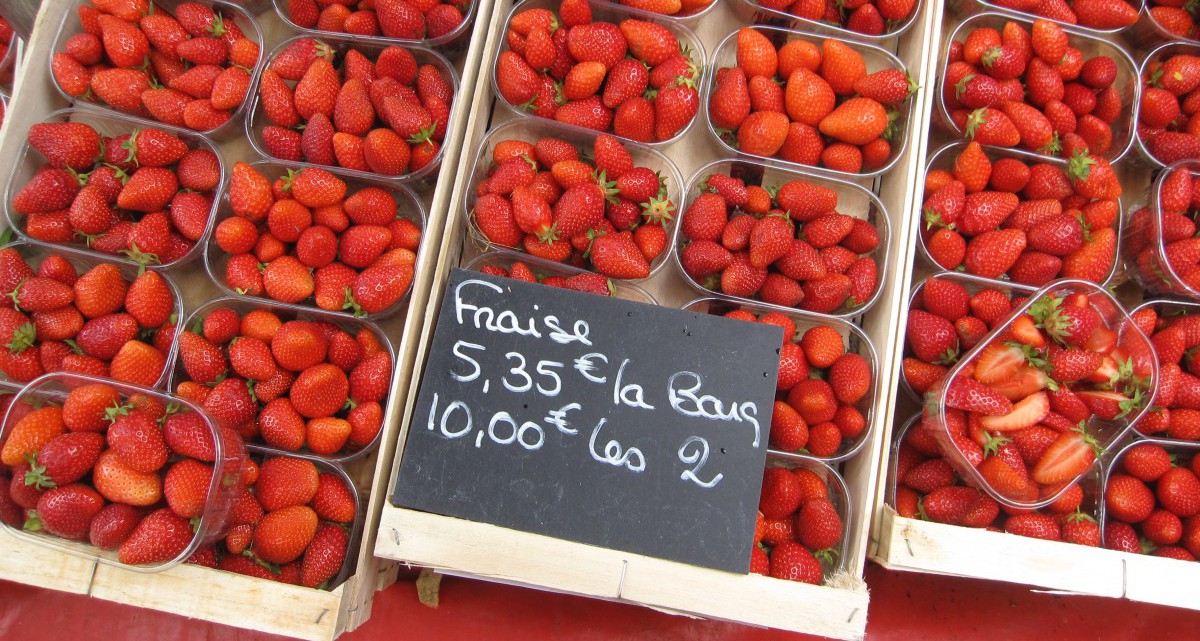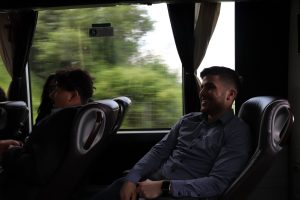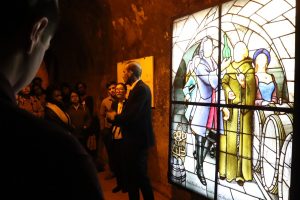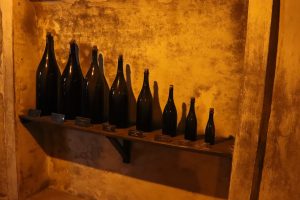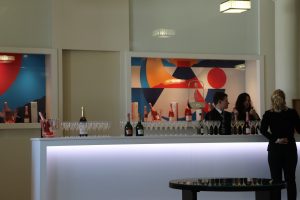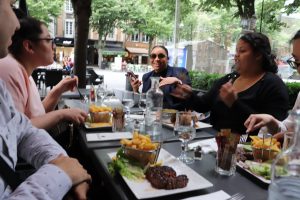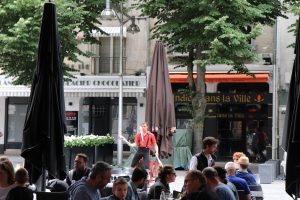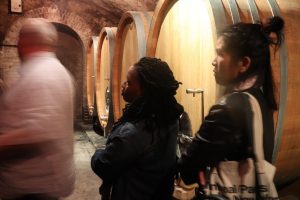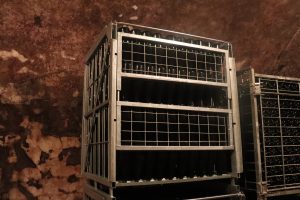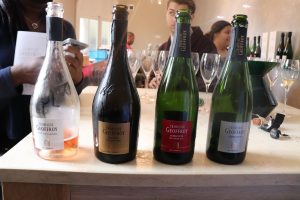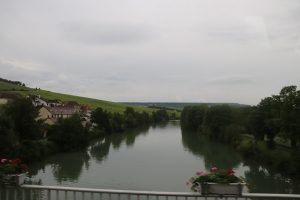Salut!
Today our day started as normal as any day in Paris can be, which is not normal at all, it’s magical. We took our 2 hour bus headed to Reims where we had not only our first introduction to champagne, but also our introduction to rural France. It was interesting to see how quickly the landscape goes from concrete and trains to grass and cows in a matter of minutes.
The first place we got off was the Taittinger cellar. Here Professor Zinder introduced us to the diverse wine regions of France and what they specialize in. She also placed an emphasis on the wine cultural differences between the old world and the new world. I found it fascinating that in the new world, they focus more on the variety of grape and in the old world, they focus more on where the grape came from.
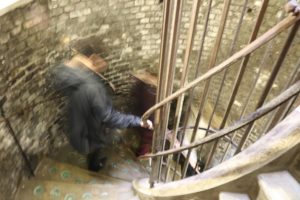
This is the stairway to the Taittinger cellar. It was really dark and my camera wasn’t in night mode so it captured the picture with an eerie effect, doing the place some justice.
In the tour of the first cellar, Taittinger, the guide focused a lot on the history and architecture of the cellar. He spoke about how this was first started by monks in the cellar and how there was a church on top of the cellar that was destroyed by bombs during the World War. He also mentioned that during the war, a lot of people went underground to live in order to survive, which included the cellar. He showed us different carvings made by those residents. The guide also mentioned how because of the shape the cellar has, it is very hard to destroy in case of bombs or earthquakes. Something interesting we learned was how huge their wine reserves are. He mentioned that there were over 2 million bottles in this location and that they have another cellar with even more millions of bottles. We also learned that it is common for bottles to explode in the middle of the second fermentation. We ended the tour by going upstairs to have a champagne tasting. Most of the students seemed to like it and a lot of them even bought bottles of champagne. I personally wasn’t a huge fan of the champagne, I felt it was bland and wildly acidic, like there wasn’t a hint of anything.
.
After finishing our tour, we walked to the center of the town. We got to see the town’s cathedral which made some of us wonder why it wasn’t completely destroyed during the war like the church above the cellar. When we reached the center, the group divided into different sections and I ended up in the group that went to eat French regional food. The food was delicious and we even got a juggling performer in front of the restaurant. It was interesting to see what their version of showtime is.
After we had lunch, we took the bus to our last tour, Champagne Geoffroy. The guide was a friend of the owner and he took us to the main groundlevel cellar where he introduced the Austrian barrels that had to be custom-made to fit through the door. This cellar was completely different from the first one because it was a local producer rather than a big brand. Everything in this cellar was done to a smaller scale and and the cellar itself was much smaller, the guide only took us down one floor. He mentioned the two kinds of fermentation required to create champagne. He talked about how after the first fermentation the bottles have be twisted over and over in order to get the sediment off the bottle. He even showed us the differences and turning the bottles by hand and how it is done by machine now since it’s much more efficient. Lastly he ended the tour by taking us upstairs and giving us a tasting of four different champagnes. He spoke about the differences based on the variety of grapes used to make the wine. He also placed a lot of emphasis on having your own opinion on how the wine tastes, rather than following what everybody else thinks. He even taught us how to open a bottle. After tasting the four wines, we headed back to the bus in order to beat Paris traffic and went back to the city.
